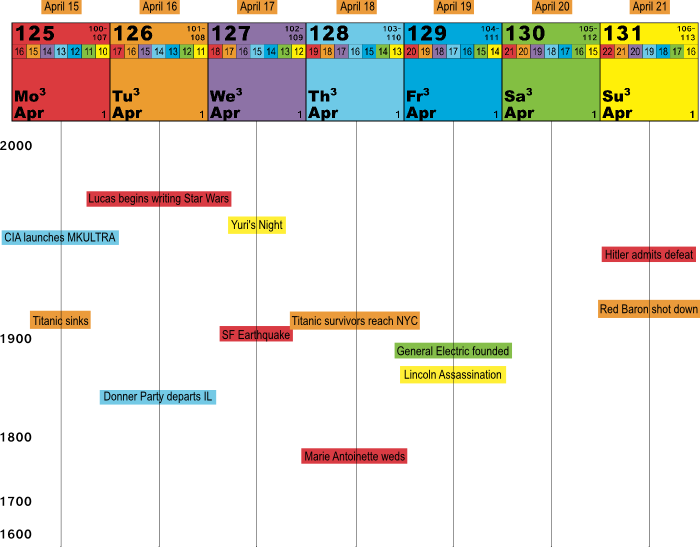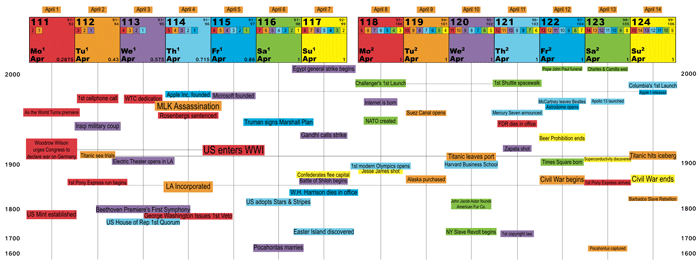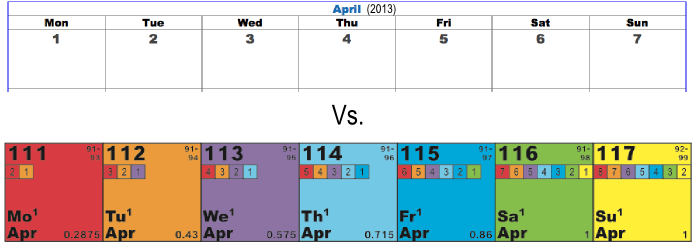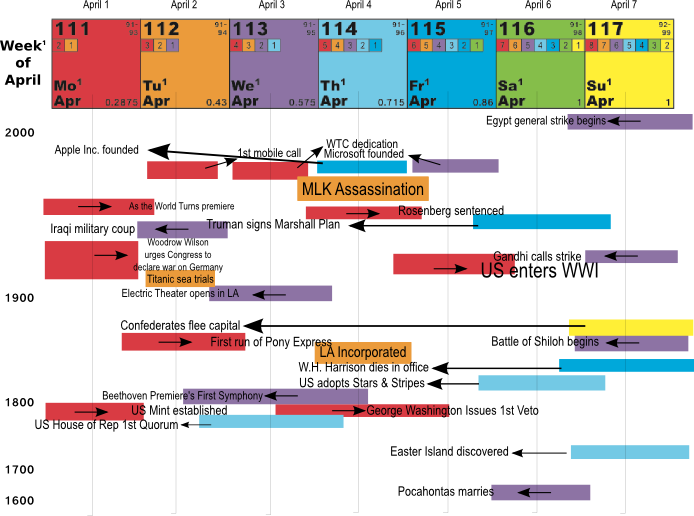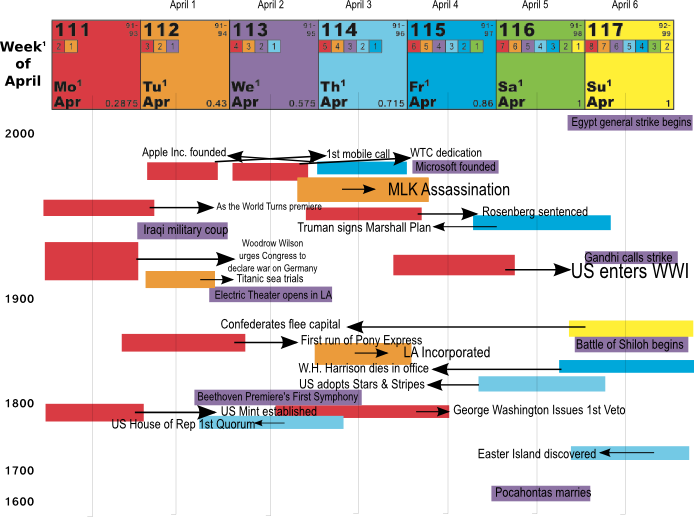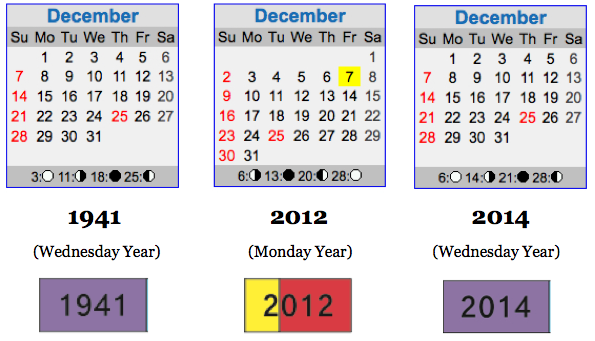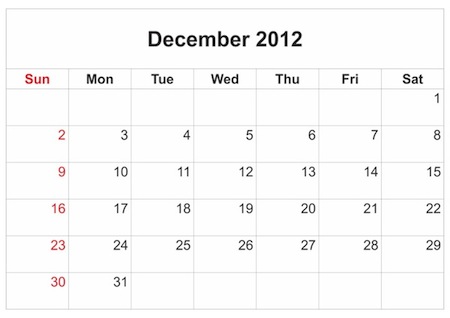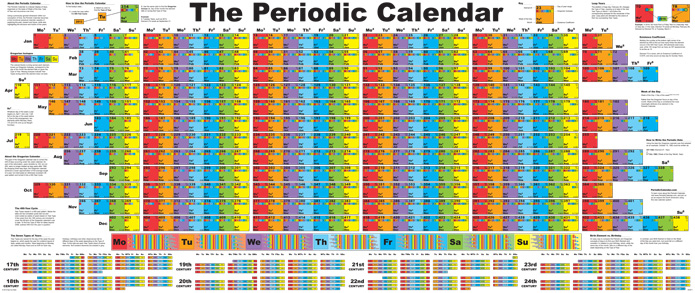Without compiling the events for the other eleven months, it’s difficult to say how one month will stand out in comparison. After a month of working with April’s history, however, I’m not surprised T.S. Eliot called it the cruellest month.
April is not only home to the Boston Marathon bombing, but also the Oklahoma City bombing and the Columbine and Virginia Tech massacres. It’s the month that has seen the Titanic sink, Martin Luther King, Jr. get assassinated and Chernobyl melt down.
It’s also quite a month for wars involving the United States…
Not that it’s all bad. As most of the months will certainly be, April is a mixed bag. It’s the month that we first heard about the double helix structure of DNA, and completed the Human Genome Project. In April, Albert Hofmann pedaled his bike into new dimensions during the first LSD trip and CIA director Allen Dulles launched the MKULTRA mind-control project. Fidel Castro first declared himself to be at war with Cuba in April and is also the month he eventually resigned from the Communist Party of Cuba. April is when the United States made the Louisiana Purchase from France, bought Alaska from Russia and welcomed Hawaii as a territory. Not to mention that it’s the month that Nixon released the Watergate tapes and Bush and Cheney had their unrecorded hearing on 9/11 in the Oval Office.
It also seems to be a busy month in the history of space exploration…
… though we’ll need more data to say.
No month will ever be defined by a single event nor even a group of them, but what can be said for the months, historically speaking? Looking at a single day in history feels like having blinders on and I hope in the coming months to continuing laying out our past within the new format of the Periodic Calendar.
What will May be like? Stay tuned!



